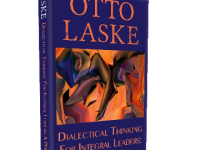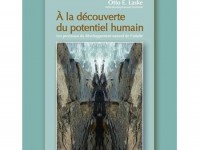Copyright 2016 by Graham Boyd & Otto Laske In this article, the authors put forth a new approach to distributed leadership based on research in adult development and the pedagogical thought of Vygotsky, originator of the notion of zones of proximal development. The article attempts to re-totalize the issues neglected, or fragmented, by theories of holacracy and other models of shared leadership, in order to arrive at a deeper understanding of contemporary attempts to redesign organizational work in the direction of “organizations without managerial hierarchies”. In so doing, the authors leave behind present notions of “individual coaching”, “team coaching”, “managerial hierarchy”, and “organizational behavior”, among others, focusing squarely on contributors’ frame of reference (FoR; world view) that determines how they put their capabilities to work collaboratively and what their needs for developmental support are. The article’s essential argument is summarized in Tables 2a and 2b, one for each dimension of adult development. The authors come to the conclusion that for holacracy and similar models to succeed, much more attention must be paid to the fact that unconventional organization designs challenge contributors’ self-identity and psychological well-being. They also show that a one-sided focus on tasks and competences (Task House) is counter-productive... Read More...
Category: Wprk Design Methodology
Seeing WORK as a Medium of Adult Development
In this short article I am pointing to some deficiencies of the present notion of DDO, "deliberately developmental organizations". In contrast, I present a short apercu on the benefits of CDF, the Constructive Developmental Framework which I see as a more comprehensive approach to understanding the nature of work and a set of tools for designing new work environments. Seeing WORK As A Medium of Adult Development Read More...
Executive Development as Adult Development
This article, chapter 9 of Demick et al’s Handbook of Adult Development (Springer 2002), tries to escape the tunnel vision of organizational theorists and consultants alike who, while glorifying leaders, cannot penetrate to the adult-developmental origins of leadership and get lost in psychological or spiritual speculations, or else lists of competences. Instead, the article adopts the distinction between "ontic" and "agentic" development, that is, the development that happens over human resources' life span development, on one hand, and the organizational mechanisms put in place to "develop" them, on the other. The article conceptualizes executive development as a lawful developmental modification of an individual's professional agenda and universe of discourse in the cognitive and social-emotional sense or, to speak with E. Jaques, his/her Size of Person. Refining Argyris, three levels of professional agenda are distinguished. M. W. McCall Jr.'s (1998) and D. T. Hall's writings (1996) are focused on in order to clarify contemporary theorists' views, referring to McCall's "five dilemmas" of human development in organizations. The article focuses on the dialectic of managerial strengths and weaknesses, the organizational shift to the "Proteian" (internal) career, and introduces Kegan's and Basseches' work alongside with empirical findings of the author. Laske, Executive Development... Read More...
Foundations of Scholarly Consulting: The Developmental Structure/Process Tool
This article of 2000 deepens Argyris’ notion of theory-in-use by recourse to empirical findings of the developmental sciences. It defines "consulting" based on this deeper notion. The article teaches a lesson still not learned in consulting: that theory-in-use has to do with levels of mental growth, both cognitively and social-emotionally, cutting through all "competence models". Consulting is redefined as the interactive design of interventions that take the level of mental growth of organization members and of their culture into account, equally in start-ups. Theory-in-use itself [what people actually do in organizations] is seen as comprising both a structural [social-emotional] aspect, referred to as individuals’ level of evolving self, and a procedural [cognitive] aspect, represented by individuals’ level of complexity handling. Their integration and unity demystifies "consciousness" as well as "leadership". In the process, the Developmental Structure/Process Tool (DSPT) – since 2005 referred to as CDF, Constructive Developmental Framework -- is introduced as an instrument of evidence-based consulting and coaching. CPJ #2, 2000. Read More...
An Integrated Model of Developmental Coaching
This article, originally published in 1999 but still very timely today, introduces a way of deepening cognitive-behavioral, psycho-dynamic, and other behavioral approaches to coaching and HR resources management. It proposes an epistemological model that focuses on adults' frame of reference (world view), the true determinant of human behavior, which has been practiced and taught internationally at the Interdevelopmental Institute (IDM) since 2000. The approach focuses on adults speech behavior as a dimension revealing their developmental profile both social-emotionally (with regard to meaning making) and cognitively (with regard to sense making or *thinking*). The paradigm and the model are developmental in a twofold sense, that of “ontic” development occurring in human organisms as the mature over their lifetime (“nature”), and of “agentic” development brought about by humans (“nurture”). An introduction to the model is presented, followed by the topology of the mental space of coaching, a summary, and suggested topics for future research. Source: Consulting Psychology Journal 51.3, pp. 139-159 CPJ #1, 1999 Read More...

